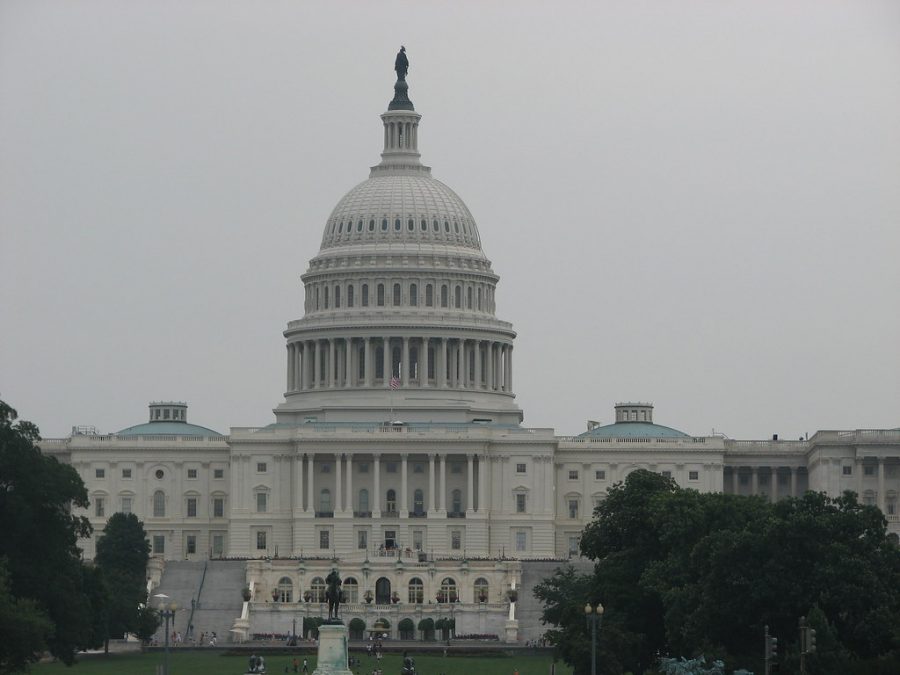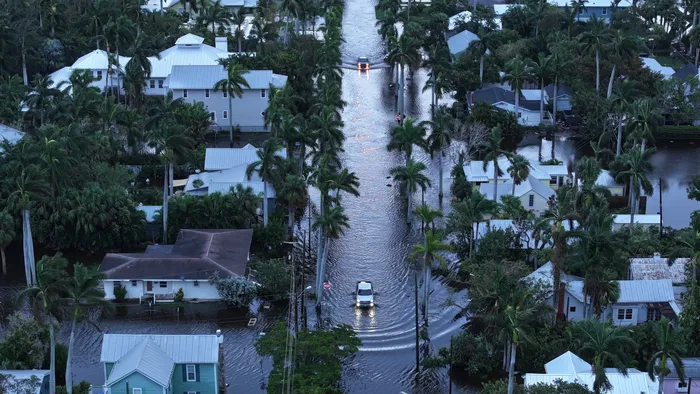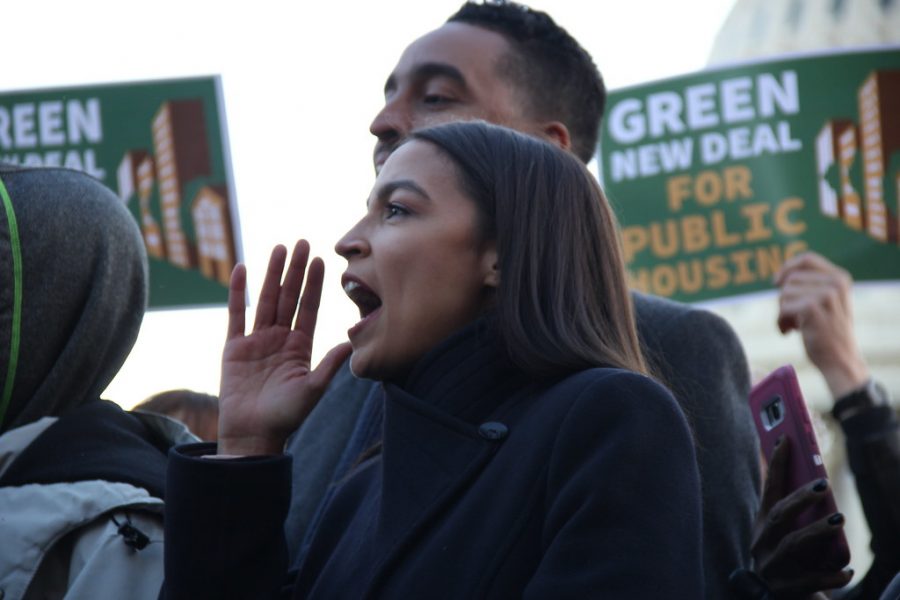The threat of a government shutdown made headlines in September and early November but after various stopgaps were passed, the news died down. Despite the lapse in coverage, the possibility of a government shutdown could be returning to the front page as soon as Friday if Congress fails to pass a new budget.
Congress is granted control of the federal budget in Article I of the Constitution. Section 8 of Article I, The Spending Clause, outlines how congress may control the federal budget and includes abilities such as the “Power To lay and collect Taxes, Duties, Imposts and Excises, to pay the Debts and provide for the common Defense and general Welfare of the United States.” The Power of the Purse is mentioned once again in Section 9 of Article I, in both the Appropriations Clause and the Statement and Accounts Clause. The Appropriations Clause outlines what activities federal funds can be used for. The clause states that: “No Money shall be drawn from the Treasury, but in Consequence of Appropriations made by Law” . The Statement and Accounts Clause requires that Congress publish a public budget for their spending, stating “a regular Statement and Account of the Receipts and expenditures of all public Money.”
A government shutdown occurs when Congress does not approve funding for the federal government before the start of the new fiscal year on October 1st. In the event of a shutdown, many government operations stop functioning, though those deemed necessary may continue to operate. The United States is the only country in which the government can shut down if a funding bill has not been passed. However, in the past 48 years, Congress has only passed three full-year budgets. Instead of funding the full government, they will typically pass multiple appropriations bills, funding different government operations. This can lead to partial government shutdowns should funding for a certain organization or part of government stop. A full government shutdown occurs when no government activities have a budget. To avoid a shutdown, Congress can propose a stopgap bill, funding the government for a short period of time.
Over the years, various changes have been made that affect how the government approves an appropriation bill and what money can be spent. In 1884, Congress passed the Antideficiency Act, which requires spending by agencies to stay within the boundaries of the funding approved by Congress. In 1974, the Impoundment Control Act (ICA) was passed to keep the executive branch from overstepping their power in the budget process. The ICA created a procedure that the president must follow if they want to spend less than outlined in the budget plan. This law was passed in response to President Nixon’s refusal to release funds to programs he opposed despite their approval in Congress. Prior to the 1980’s, however, the government did not halt its functions when there was a lapse in funding. Instead they operated on the presumption that funding would eventually arrive. In 1980 and 1981, the Attorney General at the time, Benjamin Civiletti, issued two legal opinions, arguing that it was illegal for the government to continue functioning without an approved budget. These opinions gave us the government shutdown’s we know today, where agencies and operations grind to a halt.
Since the 1980’s there have been over a dozen government shutdowns of varying severity. While some gaps in funding last only a day, others last for over a month. The longest modern government shutdown began in 2018 and ended in 2019, lasting a total of 34 days. The shutdown, which occurred during the Trump administration kept around 800,000 government workers from receiving their paychecks and many people struggled to make ends meet.
Government shutdowns have both long and short term effects, shaping the lives of everyday Americans and the economy. When government agencies go without a budget and are forced to cease operations, the federal workers that they employ are put out of a job for the duration of the shutdown and go without a paycheck. Although they are paid for the time they were not working once operations recommence, it is difficult for many people to keep food on the table during the closure. Government shutdowns have great effects on non-government employees as well. Many federal services are slowed or completely come to a halt. This affects national parks and federal museums, immigration, infrastructure and transportation, education, and food safety. In addition to leaving many citizens without support or pay, government shutdowns cost Americans and the national economy millions of dollars per day. The 2018-2019 government shutdown under President Trump cost the country’s economy an estimated $11 billion according to the Joint Economic Committee.
On September 30, Congress passed a first stop gap bill to keep the government open into November. Then, on Wednesday, November 15, Congress approved another stopgap bill to fund the government into January of 2024. The November stopgap was a two tiered bill proposed by Speaker of the House, Mike Johnson. Johnson’s predecessor, Kevin McCarthy, was ousted from his position due to the stopgap he passed in September. Unlike McCarthy, Johnson kept his job after his own stop gap was passed, despite the bill’s lack of support from House conservatives. Johnson’s stopgap funded certain parts of the government until January 19th. This included housing, transportation, and military construction. The rest of the government was funded until February 2, 2024. Just before the January 19th deadline, however, Congress passed another stop gap bill to fund parts of the government until March 1st and other parts until March 8th. With the deadline rapidly approaching, Congress is having difficulty coming to a bipartisan agreement.
Understanding the importance of the federal budget and government shutdowns is fundamental to the study of government and politics as the “powers of the purse” have long been regarded as some of the most important and powerful ways in which to control the government. In Federalist No. 58, James Madison describes the significance of this, stating that “this power over the purse may, in fact, be regarded as the most complete and effectual weapon with which any constitution can arm the immediate representatives of the people, for obtaining a redress of every grievance, and for carrying into effect every just and salutary measure.” Budget laws can enable or restrict agencies, determine what projects get funded, and greatly affect the prosperity of the American economy. However, in the event that there is a gap in funding, the economy suffers profusely, causing many people to lose their jobs, support systems, and money. With the expiration of the stopgap on the horizon, it is vital that a budget is approved and signed into law before a government shutdown can occur.










